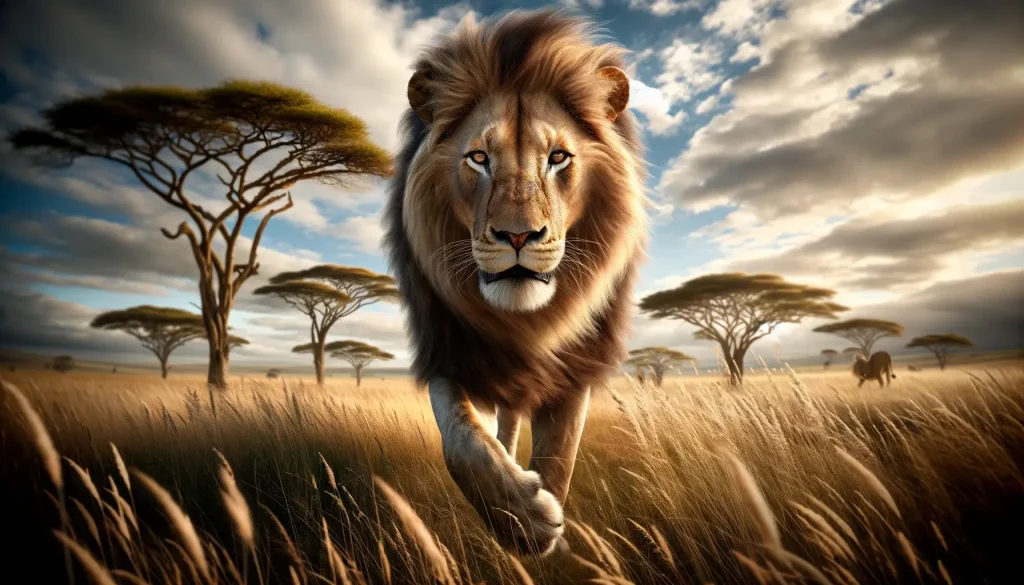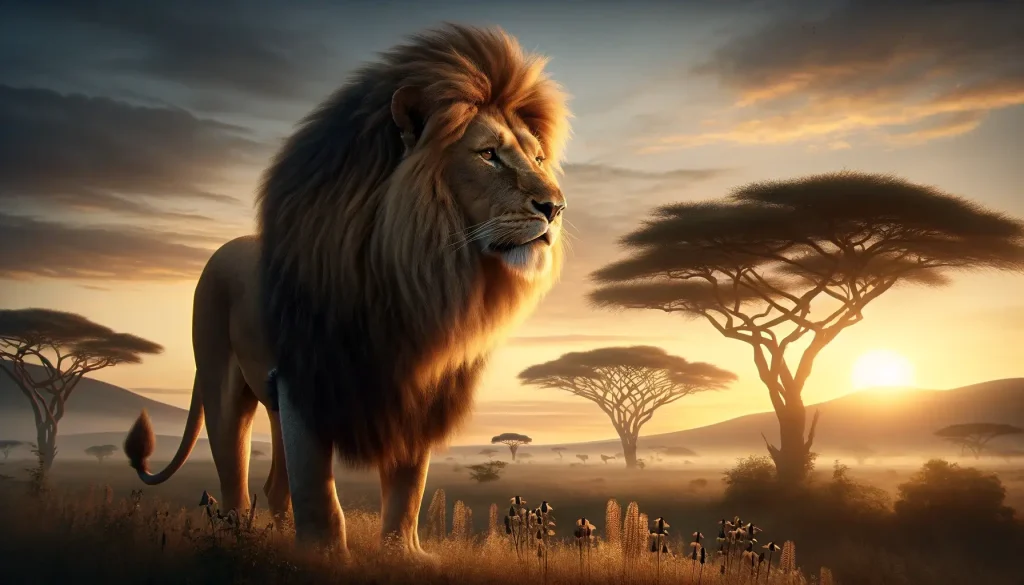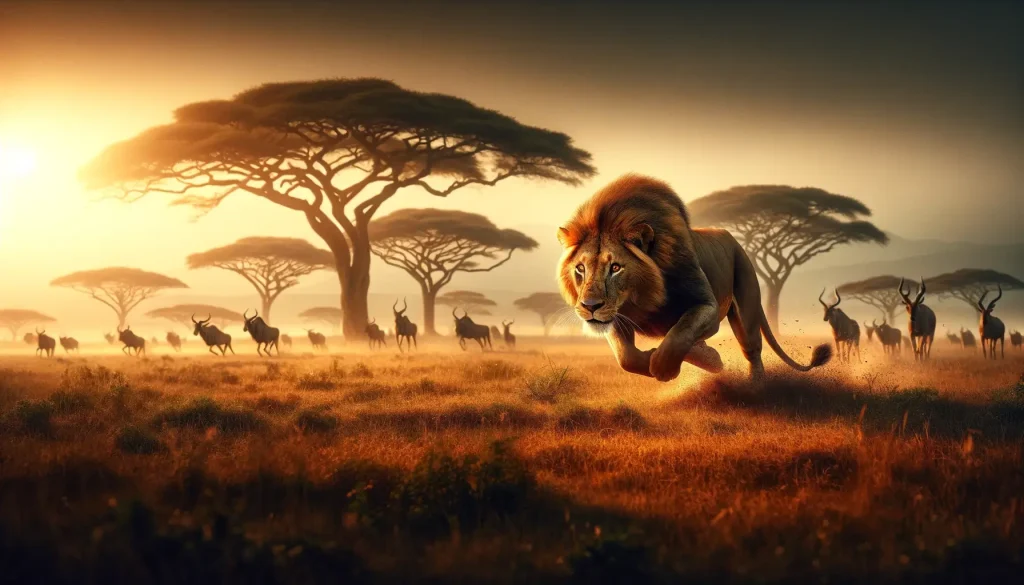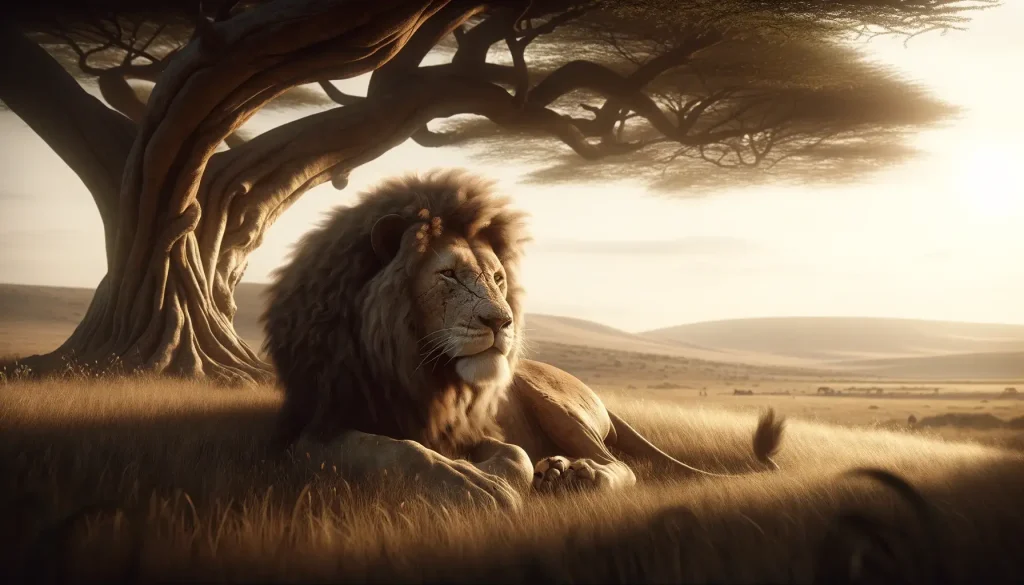
The reality of keeping a lion as a pet digs deep into significant considerations involving safety, legality, ethical implications, and the immense responsibility of catering to the needs of a wild animal in a domestic setting. Lions are not domesticated pets; they are wild animals with instincts and needs that are difficult to meet outside their natural habitat. The legalities surrounding the ownership of exotic pets vary by region but often include strict regulations to ensure the safety of both the animal and the community. Moreover, the ethical considerations of such ownership cannot be overlooked, as it raises questions about animal welfare and the conservation implications of keeping wild animals as pets.
While the dream of living with a lion might seem enchanting, the practicalities and responsibilities involved highlight a stark reality. This article sets the stage for a deeper exploration into what it truly means to keep a lion as a pet, examining the risks, responsibilities, and the broader impacts of such a decision. Through understanding these factors, one can appreciate the complexity of the relationship between humans and these magnificent creatures, fostering a greater respect for their needs and the wild nature that defines them.
FAQs About Making Lion Your Pet
Exotic pets raise many eyebrows and even more questions. Here’s a look at some of the most common inquiries:
- Is it legal to own a lion as a pet? Laws vary by country and state. In many places, owning a lion requires specific licenses and is subject to strict regulations.
- What do you feed a pet lion? Lions are carnivores, needing a diet rich in meat. This often includes beef, chicken, and special supplements to mimic wild prey.
- How much space does a lion need? A lion needs ample space to roam and exercise. Zoos and sanctuaries often suggest acres of land to mimic their natural habitat.
- Are lions dangerous pets? Yes. Despite being raised in a home, lions are wild animals with powerful instincts. They can be unpredictable and potentially dangerous.
- How much does it cost to care for a lion? Care is expensive. Food, veterinary care, and housing can cost thousands of dollars a month.
- Can a lion be trained? Lions can be trained to a degree but they are not domesticated animals. Training does not eliminate their natural behaviors or instincts.
Owning an exotic pet is more than a commitment; it’s a responsibility that requires thorough understanding, respect for the animal, and in many cases, a significant amount of resources.

Little Known Lion Facts
Lions, often dubbed as the “King of the Jungle,” captivate us with their majesty and power. However, there’s more to these magnificent beasts than meets the eye. Delving into the life of lions uncovers some fascinating and less-known facts that add depth to our understanding of these creatures.
- Social creatures: Unlike most big cats, lions are incredibly social animals. They live in groups called prides, consisting of related females, their offspring, and a small number of adult males. This social structure is unique in the big cat family.
- Vocal prowess: Lions have a powerful roar that can be heard up to 5 miles away. This roar is not just for show; it serves to communicate with other lions, marking territory and signaling their presence.
- Nocturnal hunters: Lions prefer to hunt at night, taking advantage of cooler temperatures and the cover of darkness. Their exceptional night vision and acute sense of hearing make them formidable nocturnal predators.
- Cubs’ mortality rate: Lion cubs face a harsh reality, with a high mortality rate. Up to 80% of cubs die before reaching the age of two, falling victim to predators, disease, or the challenges of their environment.
- Conservation status: Lions are currently listed as vulnerable on the IUCN Red List of Threatened Species. Their numbers have declined due to loss of habitat, human conflict, and poaching. Efforts crucial for their survival.
These intriguing aspects of lions’ lives highlight their complexity and the challenges they face in the wild. Understanding these facts fosters a deeper appreciation for lions and emphasizes the importance of conservation efforts to ensure their continued place in the world’s natural heritage.
Fur Facts Behind the Lions’ Coats
When thinking about lions, many wonder about their majestic fur. Lions boast an impressive coat that serves more than just aesthetic purposes. Lion’s fur played important roles in his daily life and overall survival, even within a human environment.
- Lions’ manes are unique among big cats. Only male lions have manes, which protect their neck during fights. The fuller and darker the mane, the more intimidating the lion to rivals or threats.
- Fur color indicates health and vitality. This aspect of a lion’s appearance is crucial in the wild for mating and territorial disputes.
- Seasons affect their fur. Lions in cooler climates or seasons may develop thicker fur.
- Whiskers are sensitive navigational tools. A lion’s whiskers help them navigate their environment by detecting air movements, essential for hunting in the wild and exploring.
- Fur serves as camouflage. This natural camouflage highlights the lion’s predatory instincts, even when not in use.

Health Care for Lions
Caring for the health of a lion, whether in a sanctuary, zoo, or under special circumstances, requires meticulous attention to detail, expertise, and resources. The essential health care for lions encompasses a wide range of practices designed to maintain their physical well-being, prevent disease, and address any health issues that may arise. Here are the key components of a comprehensive health care regimen for lions:
Regular Veterinary Check-ups
Routine veterinary exams are crucial for monitoring the health of lions. These check-ups often include physical examinations, dental assessments, and necessary vaccinations to prevent diseases. Regular blood tests and fecal examinations help in detecting infections or parasites early on.
Nutritional Management
A balanced diet is paramount for a lion’s health. Lions require a diet that is high in protein and fat, mirroring their natural prey in the wild. This usually includes meats like beef, horse, and poultry, sometimes supplemented with vitamins and minerals to ensure a complete nutritional profile. It’s important to manage the quantity to prevent obesity while ensuring the lion receives enough food for its size and activity level.
Parasite Control
Internal and external parasites can significantly impact a lion’s health. Regular deworming and treatments for fleas, ticks, and other external parasites are necessary. A routine schedule for these treatments helps prevent infestations that can lead to more severe health issues.
Dental Care
Dental health is a critical, often overlooked aspect of lion care. Lions use their teeth not only for eating but also as tools and weapons. Regular dental check-ups can prevent periodontal disease, tooth decay, and other dental issues that could affect the lion’s ability to eat and remain healthy.
Enrichment and Exercise
Physical and mental stimulation is vital for maintaining the health and well-being of lions. Enrichment activities that mimic hunting behaviors, puzzle feeders that encourage problem-solving, and ample space for exercise help in keeping lions physically fit and mentally sharp.
Stress Management
Lions, like all animals, can experience stress, especially in environments that are not their natural habitats. Managing stress through environmental enrichment, providing hiding spaces, and minimizing unnecessary disturbances is essential for their overall health.
Reproductive Health
For lions in captivity, managing reproductive health is crucial. This includes decisions about breeding to ensure genetic diversity and prevent overpopulation, as well as care during pregnancy and for newborn cubs. In some cases, contraception may be used to manage populations in captivity responsibly.
Emergency Care
Having a plan for emergencies, including access to specialized veterinary services, is essential. This could include surgeries, treatments for injuries, or managing chronic conditions that may arise in older lions.
Record Keeping
Detailed records of health checks, vaccinations, treatments, and behavioral observations are vital. They help in monitoring the health status over time, making informed decisions, and providing the best possible care.
Specialized Training
Caretakers and veterinary staff need specialized training to safely and effectively manage and treat lions. Understanding lion behavior, knowing how to interpret signs of illness or distress, and being trained in emergency procedures are all crucial skills.

Lion’s Diet
Lions, known as apex predators in their natural habitats, have dietary needs that are crucial to their survival, health, and overall well-being. In the wild, their diet consists primarily of large ungulates such as zebras, wildebeests, and antelopes. However, when in captivity or under human care, providing a diet that meets their nutritional needs requires careful planning and understanding of their natural feeding behaviors.
Composition of a Lion’s Diet
- Protein-Rich Foods: Lions require a diet high in protein to support muscle growth and maintenance. This is typically provided through raw meat such as beef, chicken, rabbit, and horse meat. It’s essential that the meat is as fresh as possible to mimic the nutritional value of their wild prey.
- Whole Prey: Occasionally offering whole prey can be beneficial for captive lions. This includes feeding them whole carcasses of animals (such as rabbits or chickens), which helps in dental health by cleaning their teeth and gums and provides mental stimulation, mimicking their natural hunting behaviors.
- Bone Intake: Consuming bones is crucial for lions, as it helps in wearing down their teeth to keep them sharp and provides a source of calcium and other minerals. However, the size and type of bone must be carefully selected to prevent dental fractures or intestinal blockages.
- Supplements: In some cases, especially with processed or frozen meats, supplements may be necessary to ensure the lion receives all the required nutrients. These can include vitamins and minerals such as vitamin E, taurine, and others that might be deficient in a captive diet.
Feeding Practices
- Quantity and Frequency: An adult lion can consume up to 5-7 kg (11-15 lbs) of meat per day, though this can vary based on the lion’s size, age, and activity level. Lions do not eat every day in the wild, often feasting on large meals with intervals of rest. Mimicking this pattern, with fasting days, can contribute to their physical health and mimic natural feeding behaviors.
- Feeding Safety: In captive settings, ensuring safe feeding practices is essential to prevent aggression and ensure the well-being of both the lions and their caretakers. This may involve secure feeding enclosures and tools designed for safe meat distribution.
- Monitoring Health: The diet and feeding practices must be regularly evaluated by veterinarians and nutritionists specializing in large carnivores. Changes in appetite or digestion can be early signs of health issues.
Providing an appropriate diet for lions under human care is a complex task that demands a thorough understanding of their nutritional needs and natural behaviors. It’s a vital part of their overall welfare, emphasizing the commitment required to care for these majestic animals properly. Meeting the dietary needs of lions is not just about sustaining them; it’s about enriching their quality of life and ensuring their physical and psychological well-being.

The Legal Complexities of Owning an Exotic Pet
Before venturing into the world of exotic pet ownership, it’s crucial to understand the legal implications. Ownership laws for exotic animals, including lions, vary significantly from one region to another. These laws are crucial for protecting both the animals and the communities where they might live.
- Varied regulations across regions: While some areas may allow the ownership of exotic pets with specific permits, others completely ban it. It’s not just about whether you can own an exotic pet, but also how it must be housed and cared for.
- Permit and licensing requirements: In places where it’s legal to own an exotic pet like a lion, obtaining a permit can be a complex process. It often requires proving that you can properly take care of and secure the animal.
- Impact on insurance: Owning an exotic animal can also affect your homeowners’ insurance. Some insurers may not cover incidents involving exotic pets, or they may require additional liability coverage.
- Animal welfare and conservation concerns: Beyond legalities, potential owners need to consider the ethical implications. Keeping an exotic pet can contribute to the illegal wildlife trade and negatively impact conservation efforts.
Owning a lion would involve navigating a labyrinth of legal requirements, aimed at ensuring the safety and well-being of both the animal and the community.
Beginner Guide to Raising Quail at Home
What are the Signs of a Dog Concussion?
What Causes Your Dog’s Ears to Smell Bad?
When your dog’s ears start to emit an unpleasant odor, it might leave you puzzled…
Methimazole Treatment for Cat Hyperthyroidism
Methimazole plays a crucial role in managing feline hyperthyroidism, a condition marked by an overactive…
Got Hummingbirds in your Backyard? Here’s How to Care for Them.
Why Does Your Cat Pee Outside the Litter Box?
Cat’s Litter Box Issues It’s not uncommon for cat owners to face the frustrating dilemma…




